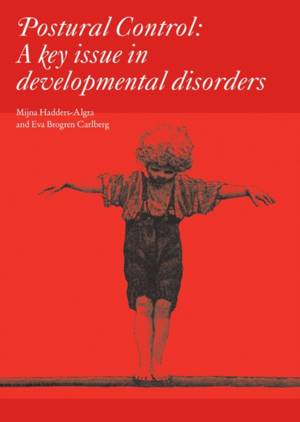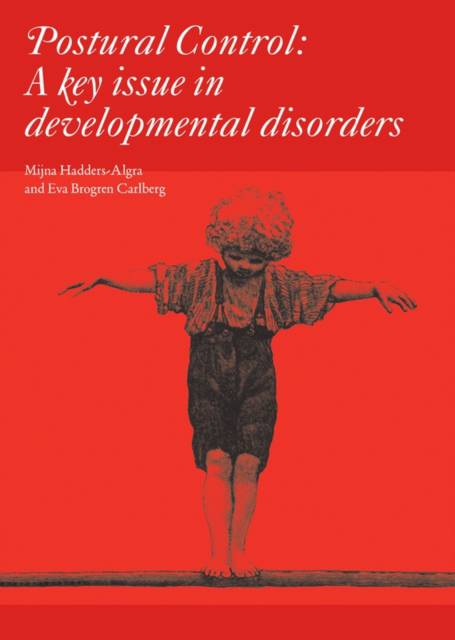
- Retrait gratuit dans votre magasin Club
- 7.000.000 titres dans notre catalogue
- Payer en toute sécurité
- Toujours un magasin près de chez vous
- Retrait gratuit dans votre magasin Club
- 7.000.0000 titres dans notre catalogue
- Payer en toute sécurité
- Toujours un magasin près de chez vous
Description
The complex nature of the postural control system makes it vulnerable to adverse conditions during early life, such as prenatally or perinatally acquired lesions of the brain or preterm birth. Children with disorders of the developing brain nearly always have dysfunctions in postural control. The postural control system of children with other neurodevelopmental disabilities such as myelomeningocele or muscle disease is also challenged: it has to find age-specific solutions for the postural problems posed by the disorder. These postural problems have serious consequences for the activities of daily life, as adequate postural control is a prerequisite for adequate motility. Until now, knowledge about the nature of postural problems in children has been scattered, and this has hampered the development of appropriate therapeutic management strategies. This book is a breakthrough in that it introduces the reader to the complexity of typical and atypical postural development and provides suggestions for the day-to-day management of postural problems in children with developmental disorders such as cerebral palsy, developmental coordination disorder, muscle disorder and myelomeningocoele. 'This should be a "must read" for anyone whose occupation or interests are in the areas of motor development or rehabilitation‚.' Diane Damiano
Spécifications
Parties prenantes
- Auteur(s) :
- Editeur:
Contenu
- Nombre de pages :
- 352
- Langue:
- Anglais
- Collection :
- Tome:
- n° 179
Caractéristiques
- EAN:
- 9781898683575
- Date de parution :
- 01-12-08
- Format:
- Livre relié
- Format numérique:
- Ongenaaid / garenloos gebonden
- Dimensions :
- 168 mm x 239 mm
- Poids :
- 612 g

Les avis
Nous publions uniquement les avis qui respectent les conditions requises. Consultez nos conditions pour les avis.






